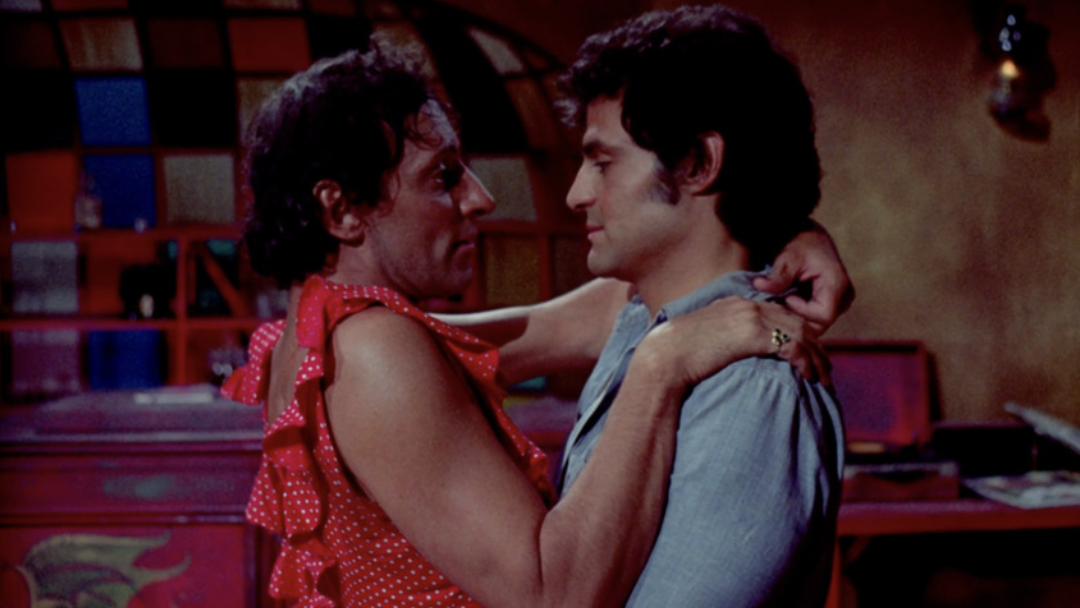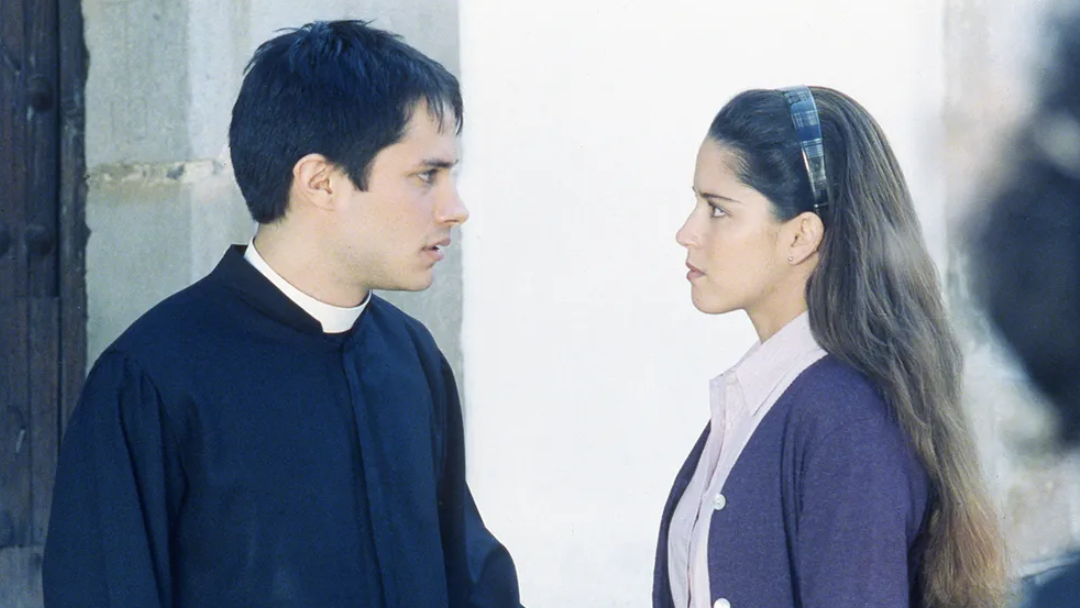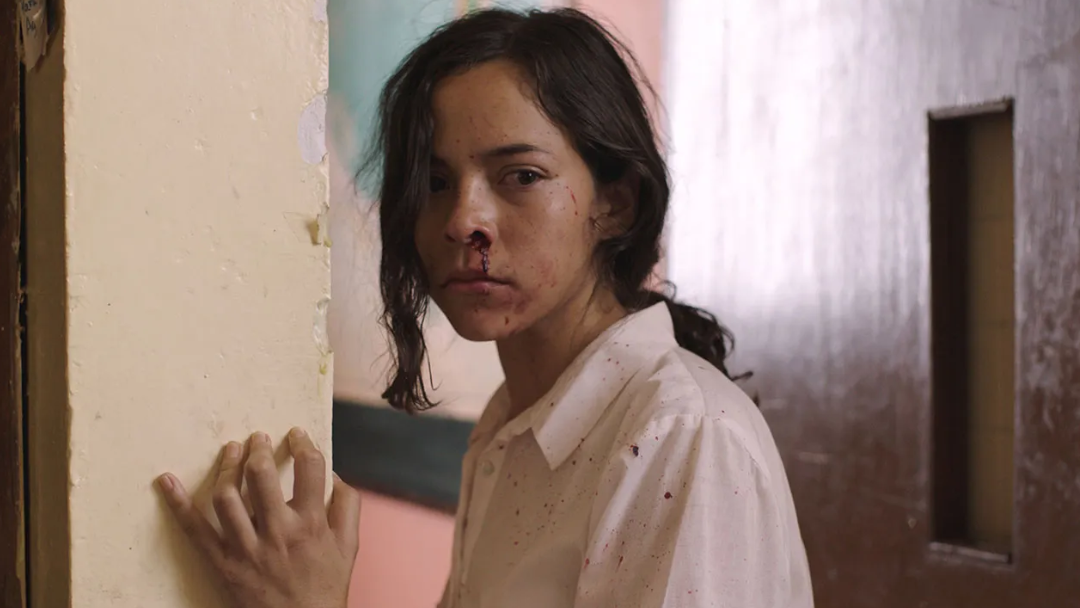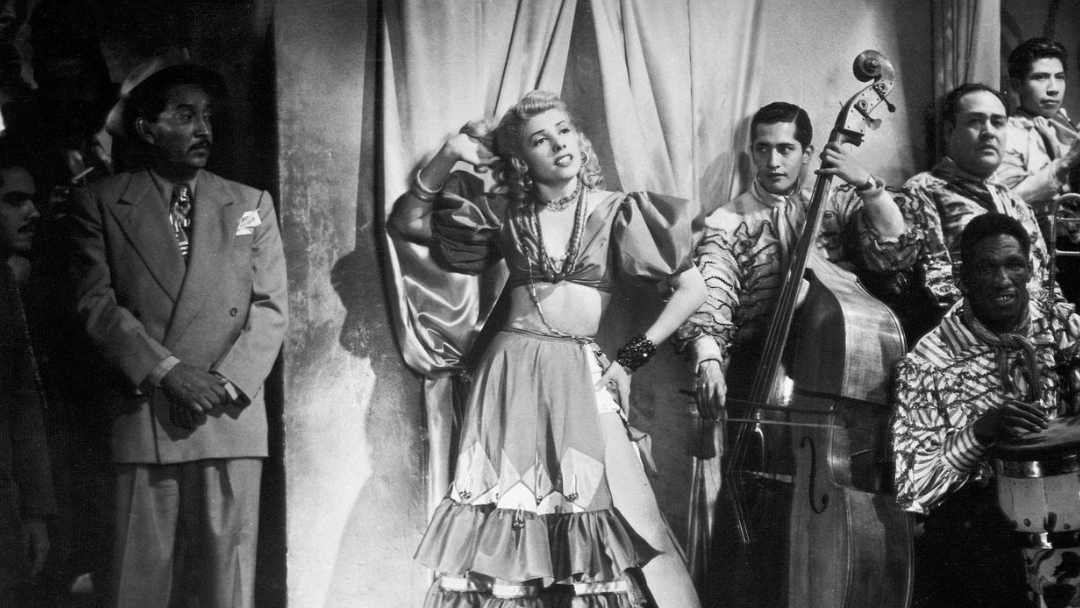Mexican Romance: Through the Heart of the Nation
Programmed by: Luis Madrigal Perez
We know the French do it, but what about the Mexicans? Here are nine films on loving, hating, wanting, and every shade in between. From hot priests to furiously mating horses, from romantic comedies to erotic sci-fi horror, from contemporary classics to Golden Age gems, this series is a way to know Mexico from the way it discusses, performs, and films love. Through the heart of the nation, we go from lesbian desire in a Catholic convent to queerness in the brothel; from bedroom to rural shack to the top of a skyscraper. Across genres and geographies, we are challenged by the strange and fascinating sentimental history of a country we think we know, but, just like any other, we really don't.
Love is a mystery; romance is an exploration. It might build plots, but it also destroys logic. On the outside, it appears socially determined; on the inside, it feels like nobody's been there before. Doubts and dreams, stereotypes and character: this is the stuff cinema is made of too. If the movies teach us how to love, then every national cinema must teach it differently.
Time and again, these films confront us with the notion of limits. Social, moral, legal — romance and desire push constantly against them, sometimes violently so, and in that moment of collision, we catch a glimpse of past and present: who we were, what we want, who we wish we could be.
Like Water For Chocolate (1992)

Alfonso Arau · 105m · 35mm
Living in the midst of the Mexican Revolution, Tita is bound by family tradition not to marry. She falls in love with Pedro (who marries her older sister), and instead learns to cook. The food Tita makes inspires those who eat it to weep at a wedding, become aroused at the dinner table, and run outside naked to leap onto the horse of a passing revolutionary. Intertwining the sensual and culinary, Like Water for Chocolate explores the intricate ways in which emotions and stories can be passed on.
Wednesday, October 2nd 7:00 PM
Muchachas de Uniforme (1951)

Alfredo B. Crevenna · 83m · DCP
A Mexican remake of pioneering 1931 lesbian film Mädchen in Uniform (which was censored by the Nazis). Set in a Catholic convent, the ending was altered from the original to comply with Mexico’s equivalent of the Hays Code. Still, led by an all-female cast (men are either shadows or voice-overs), this story of a poor orphan girl falling in love with her teacher was a radical and early foray into queerness on the national screen.
Film provided by Filmoteca UNAM.
Wednesday, October 9th 7:00 PM
El lugar sin límites (1978)

Arturo Ripstein · 111m · DCP
A cross-dresser and his daughter run a local, small-town brothel, where the arrival of a homophobic, violent macho brings erotic heat and deadly trouble. Before Y tu mamá también, this film contained the most memorable kiss in Mexican cinema. Based on a novel by Chilean writer José Donoso, who, alongside literary greats such as José Emilio Pacheco and Manuel Puig, collaborated on the screenplay.
Wednesday, October 16th 7:00 PM
El crimen del Padre Amaro (2002)

Carlos Carrera · 118m · 35mm
Forget Fleabag: Gael García Bernal is the hot priest in this provocative melodrama, which was the highest-grossing Mexican film at the time of its release. Recently ordained, Father Amaro is sent to a small town, where he must deal simultaneously with his sexual attraction to a young woman and the immorality of the Catholic church. Directed by Carlos Carrera, previously a Palme d’Or winner.
Wednesday, October 23rd 7:00 PM
La región salvaje (2016)

Amat Escalante · 98m · DCP
A mysterious, extraterrestrial creature in a rural shack becomes the unexpected relief for a couple’s sexual frustrations. David Cronenberg meets Hokusai meets Lars von Trier meets Żuławski’s Possession (1981) in this sci-fi/erotic horror combo, which explores issues of male chauvinism, homophobia, and female desire. Escalante won the Silver Lion at the 73rd Venice Film Festival for directing.
Wednesday, October 30th 7:00 PM
Victims of Sin (1951)

Emilio Fernández · 84m · DCP
A cabaret dancer (Ninón Sevilla) rescues and adopts a baby found in a garbage can. She works at a club run by a man who vows to protect her from a life of poverty and prostitution, but puts her life in danger for the child. Simultaneously film noir and musical, both murder sequences and dance numbers are by Dámaso Pérez Prado, the King of Mambo. Another masterpiece from Emilio Fernández and one of Mexico’s greatest cinematographers, Gabriel Figueroa.
Wednesday, November 6th 7:00 PM
Enamorada (1946)

Emilio Fernández · 99m · DCP
A gallant, ruthless Mexican revolutionary falls for the most beautiful woman in town, who is (unfortunately!) engaged to an American living in rural Mexico, and the daughter of the town’s richest man. He is rough and domineering, she is independent and sophisticated. Will they end up together? A true gem of Mexico’s Golden Age of cinema, featuring two of its biggest stars, Pedro Armendáriz and María Félix.
Film provided by Filmoteca UNAM.
Wednesday, November 20th 8:00 PM
Japón (2002)

Carlos Reygadas · 134m · DCP
Reygadas’s debut feature gives us an unnamed man leaving Mexico City for the rugged countryside. He plans to commit suicide, but when all is set in place, he cannot find the will. Instead, an erotic relationship develops with a much older woman. The rest is a sight to behold (and suffer through). The camera movements, cinematography, and final tracking shot are among the most impressive in contemporary cinema.






